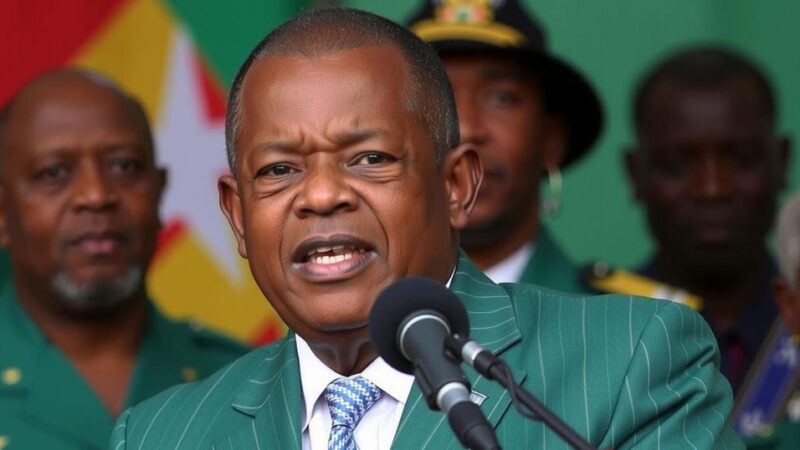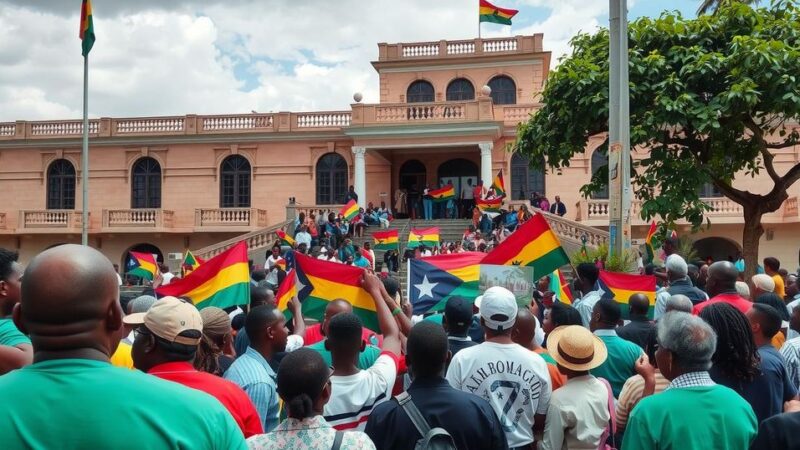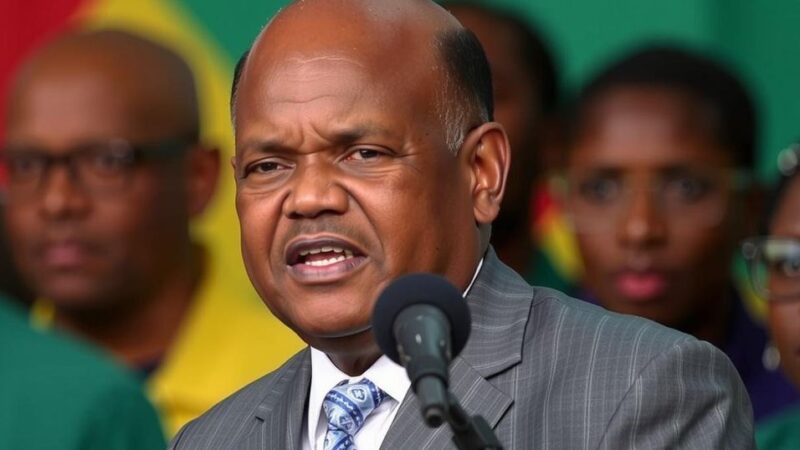Gen Z Latinx voters are expressing uncertainty about the 2024 presidential election, citing dissatisfaction with both Vice President Kamala Harris and former President Donald Trump. Key issues include immigration policies and low voter registration rates among young Latinx individuals, which could affect their electoral engagement. Despite some leaning towards Trump for economic stability, others like Alina Andino advocate for supporting female leadership, illustrating the complex dynamics of this voter demographic.
The electoral landscape for the 2024 election reveals a complex dilemma faced by Gen Z Latinx voters, particularly regarding their sentiments towards major presidential candidates. Many young Latinx individuals express significant uncertainty and dissatisfaction with both Vice President Kamala Harris and former President Donald Trump. A recent report by ABC7 highlights insights from these voters, emphasizing their frustrations with immigration policies and their low registration rates, potentially hindering electoral participation. Alina Andino, a 26-year-old Latinx voter, articulates the general sentiment of her peers by stating, “We can fix your houses; you can have our tacos. But the people that live in Mexico, or say, Puerto Rico, you know, can’t come here safely without a bunch of hate.” This illustrates a profound feeling of disconnect that young Hispanic voters experience when considering immigration policies. Furthermore, Sylvia Puente, President of the Latino Policy Forum, underscores a trend where engagement in protest politics supersedes interest in traditional electoral politics among youth. The statistics reveal that Latinos have the lowest percentage of eligible voters registered to vote, a trend notably pronounced among Gen Z individuals. Another young voter, Perla Santoyo, reflects on her extensive wait to achieve U.S. citizenship: “It feels infuriating, honestly, to constantly trying to prove a point to Gen Zers who don’t want to vote in this election.” As she waits, she relies on her peers to advocate for change through voting. When it comes to the candidates, the apprehensions about their immigration stances are evident. Rolando Herrejon, aged 25, voices skepticism regarding Vice President Harris’s policies, especially after her ambiguous response on national television when asked about differences she would implement if elected: “There is not a thing that comes to mind.” This lack of clarity has driven some, like Herrejon, to prefer Trump primarily for his economic policies, stating, “It’s more so just for the economy.” Conversely, Andino perceives Harris as the “lesser evil,” given her outreach efforts toward the Latino community, including culturally relevant advertising. She emphasizes the importance of supporting strong female candidates in leadership: “Women run the world. And I always tell people, like, if women weren’t popping out babies, none of us would be here even having this conversation.”
The 2024 presidential election is shaping up to be crucial for young voters, particularly within the Latinx community. This demographic has historically faced challenges regarding voter registration and participation, due in part to disillusionment with the political system and concerns over key issues such as immigration. The current political climate has further complicated their decision-making processes as they weigh their options between established candidates like Vice President Kamala Harris and former President Donald Trump. With low confidence in either option, many in this generation lean towards alternative forms of activism rather than traditional voting.
In conclusion, Gen Z Latinx voters stand at a crossroads as they reflect on their political options for the upcoming 2024 election. Their voices, which resonate with discontent regarding the candidates’ stances on immigration and their broader political engagement, highlight a generational gap in confidence towards electoral participation. While some may lean towards Donald Trump for economic reasons, others, like Alina Andino, recognize the significance of gender representation in politics, expressing sentiments of supporting candidates who resonate with their community’s needs. This growing tension underscores the need for candidates to address the concerns of the youth electorate meaningfully and effectively.
Original Source: abc7chicago.com







